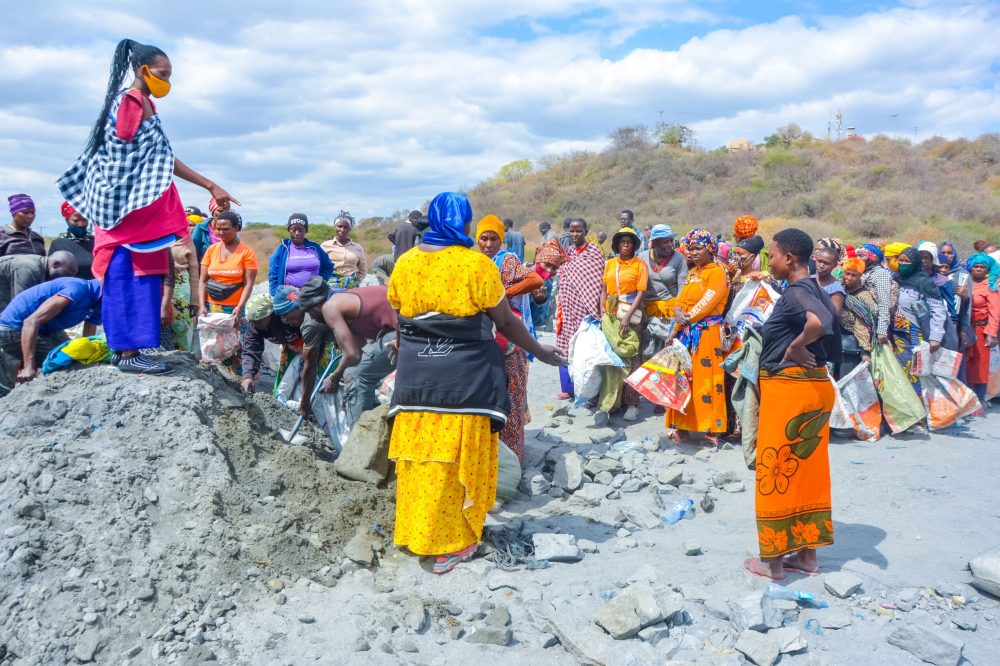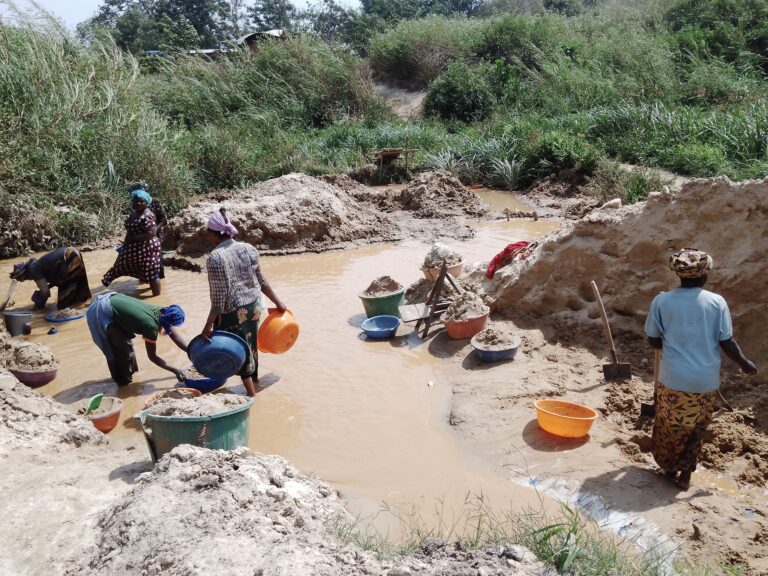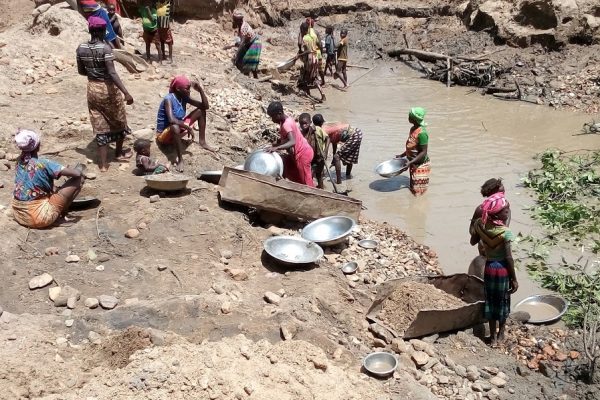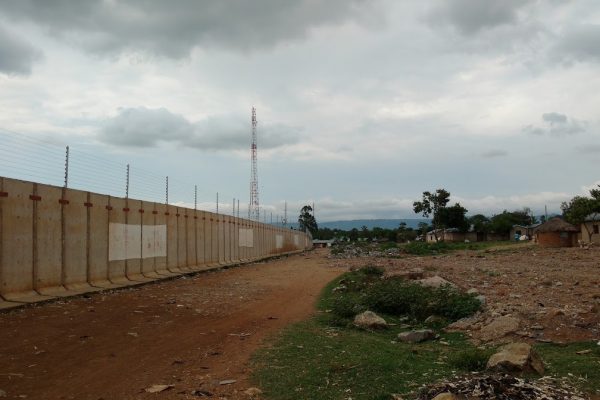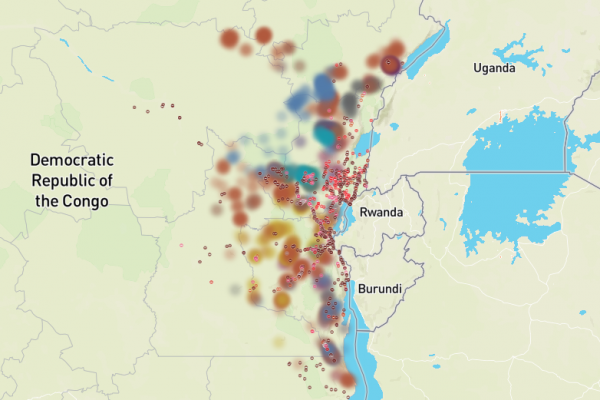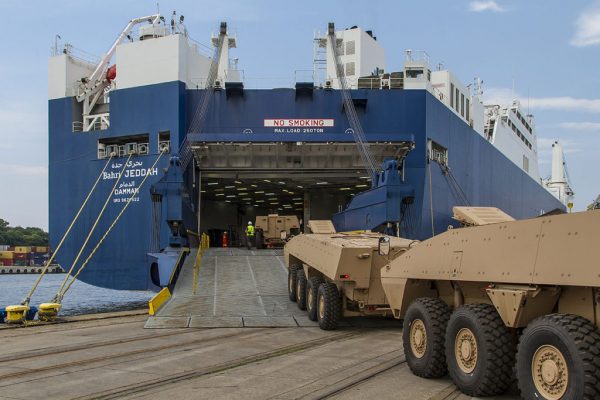Independent research and capacity enhancement for durable peace, sustainable development and human rights
IPIS' latest publications
Since 2022, western Democratic Republic of Congo (DRC) has been plagued by a major security and humanitarian crisis, with more than 5,000 dead, and 280,000 still displaced. While international attention has focused on the violent conflicts in eastern DRC, an intercommunity conflict at the on the outskirts of Kinshasa is sinking into a spiral of violence, with very little attention from national authorities and international partners. Against this backdrop, and as part of the awareness-raising campaign led by Caritas International Belgium and Justice & Paix, this report seeks to draw attention to the Mobondo crisis and its consequences.
The European Union has developed a set of due diligence frameworks aimed at improving corporate accountability in mineral supply chains, particularly those linked to conflict-affected and high-risk areas. These regulations, such as the Conflict Minerals Regulation, the Battery Regulation, and the Corporate Sustainability Due Diligence Directive (CSDDD), seek to address both social and environmental risks associated with mineral extraction. This IPIS report argues that while these frameworks represent an important step, their current implementation does not sufficiently account for the complex nexus between environmental harm, conflict dynamics, and poor governance in areas like eastern DRC.
New peace agreements from Washington and Doha have brought hope for initiating a pathway to resolve the ongoing M23-conflict in DRC’s eastern territories in recent months. However, after the signing of the Declaration of Principles in Doha on 19 July, direct negotiations between the DRC and AFC/M23 were intended to result in a comprehensive peace agreement and were planned to begin no later than 8 August. By the end of September, however, these negotiations had still not commenced. Despite the new permanent ceasefire agreed on in Doha, continuous clashes between the AFC/M23 and the FARDC-Wazalendo coalitions persist in the DRC’s North and South Kivu provinces.
Women have historically contributed to mining activities across the world, yet their roles have often been overlooked or undervalued. Also in Tanzania’s artisanal and small-scale gold mining (ASGM) sector, women face systemic barriers rooted in cultural norms, legal frameworks, and socio-economic structures.
In this study, Thubutu Africa Initiatives (TAI) explores the cultural and social factors that hinder women's involvement in gold mining in Mwakitolyo, a key artisanal and small-scale gold mining site in Shinyanga region where women represent a significant albeit minority portion of the ASGM labor force.
Tanzania is a key source of coloured gemstones, including tsavorite, rubies, and sapphires. The sector, driven largely by artisanal and small-scale mining (ASM), contributes to the national economy but women—who make up 25–30% of the workforce—are often confined to insecure, low-paying roles and see little of its benefits. This report, carried out by HakiMadini with methodological and editorial support from IPIS, focuses on Kalalani ward in Tanga region, a long-standing gemstone-producing area. Based on field research with women miners, it examines the barriers they face, the coping strategies they adopt, and the opportunities that could strengthen their participation.
Tanzanite, a rare and valuable gemstone, holds significant economic potential for Tanzania. Yet, the country's mining sector is marked by persistent socio-economic inequalities, particularly affecting women.
In Mirerani – the only place on earth where tanzanite is found – women face systematic barriers to decent work, equipment, training and leadership positions.
These challenges – compounded by entrenched discrimination and restrictive societal norms – exclude women from fully benefiting from tanzanite wealth and perpetuate cycles of poverty.
Carried out by the Tanzanian civil society organization CSP (Civic Social Protection Foundation) with support from IPIS, this report helps close the critical knowledge gap on the socio-economic and health challenges faced by women miners in Mirerani, providing evidence-based insights to guide inclusive and gender-responsive policy design.
The past year has left many of us witnessing a collapsing world order. In this rapidly evolving global landscape, marked by increasing geopolitical fragmentation, growing competition over critical minerals, and shifting alliances, IPIS has remained focused on its mission: provide governments and private sector actors with fact-based perspectives, support civil society across Sub Saharan Africa and Belgium, and be present at relevant forums with insights grounded in field research and collaboration with civil society partners. This annual report gives an overview of all research projects, capacity enhancement initiatives, and outreach activities conducted by IPIS in 2024. Our financial statements for the fiscal year are available in an extended format.
The escalation of conflict in eastern DRC has sparked increased media attention on coltan and its role as a driver of violence. While most coverage has focused on the production and (il)legal trade of coltan in North Kivu, smuggling is also widespread in South Kivu. This report examines the key smuggling routes, contributing factors, and practices.
Cash transfer programmes that provide financial support directly to households have been implemented in many countries as an alternative strategy to fight poverty and to strengthen social protection. In 2021, the Belgian non-profit organisation Eight launched a UCT programme in an artisanal mining zone in the province of Maniema, in the Democratic Republic of Congo. IPIS conducted a pilot and control study on the socio-economic effects of UCTs distributed in this programme.
New mediation efforts have been made throughout June to end the ongoing conflict between the Rwandan-backed M23 rebels and pro-government forces in the North and South Kivu regions of eastern Congo. On June 27th, the Democratic Republic of Congo and Rwanda signed a peace agreement in Washington, D.C., aimed at de-escalating tensions and fostering regional stability after years of conflict in eastern DRC. While Trump described the peace agreement as a “tremendous breakthrough”, critics caution that its successful implementation hinges on the political and diplomatic commitment from all parties involved. Although frontlines remained relatively calm in the first half of June, heavy clashes resumed in the second half of the month in both North and South Kivu.
For over a decade, the Central African Republic (CAR) has been at the center of international efforts to curb the trade in conflict diamonds. In 2013, the Kimberley Process (KP) imposed a rough diamond export embargo following a violent coup and widespread reports of rebel financing through diamond mining and trade. While the embargo was partially eased between 2015 and 2019, further progress stalled amid rising geopolitical tensions. Most mining zones remained under embargo until November 2024, when the KP – rather abruptly – lifted the remaining restrictions, citing improved conditions.
News
In an op-ed in De Morgen, IPIS' Director Filip Reyniers and Chair Loïc De Cannière respond to Mark Elchardus, who recently argued that it would(...)
Amid persisting concerns over how mineral exploitation is entangled with conflict, human rights abuses, smuggling, and corruption, the Kimberley Process (KP) keeps resurfacing as a(...)
Latest briefing
Subscribe to IPIS' updates
Do you want to receive the IPIS briefing with a selection of articles, news and updates on natural resources, armed conflict, business and human rights, and arms trade? The IPIS briefing also includes a topical editorial and related articles, and updates on IPIS’ research findings, new maps, reports and briefings.






